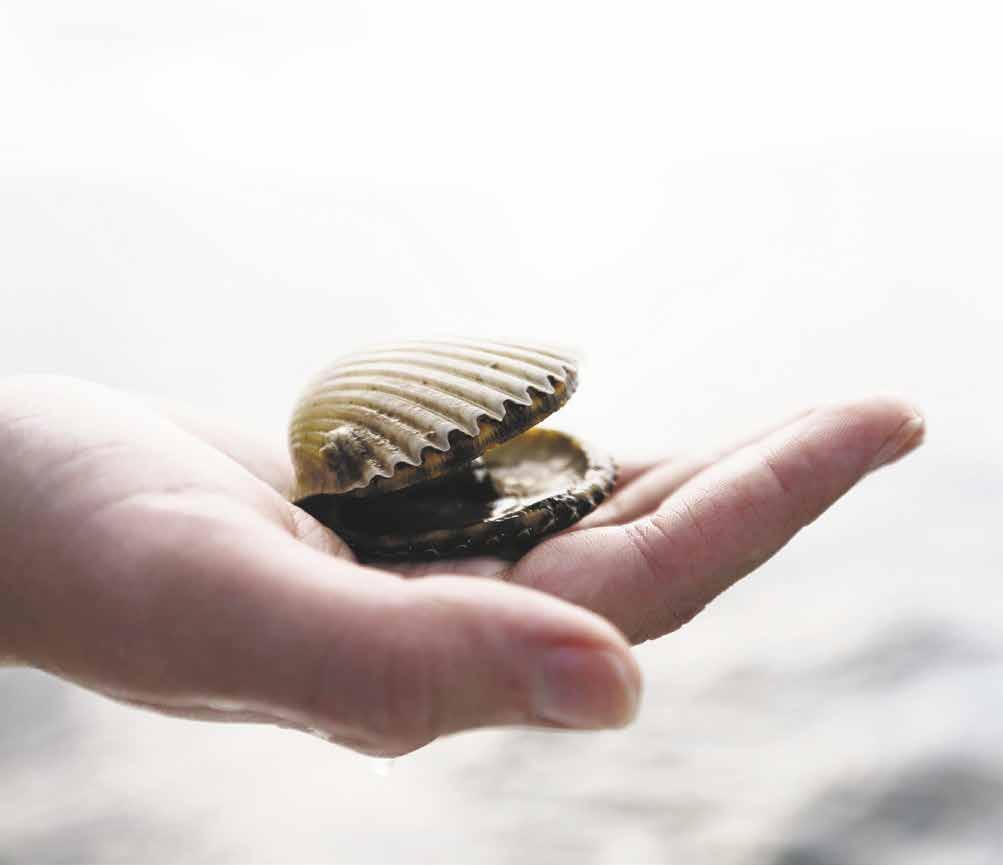



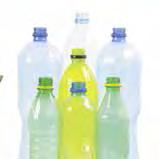
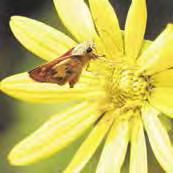
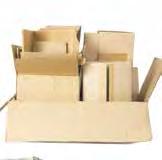
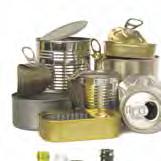
Recycling@MyPasco.net • 727-856-4539 Facebook.com/PascoCountySolidWasteAndRecycling Pasco Recycling 2023
Calendar of events 2023-2024
April 2023
Earth Day at Crews Lake
Wilderness Park
April 22
June 2023
World Oceans Day Cleanup
June 8
September 2023
Keep Pasco Beautiful Cleanup
Sept. 16
November 2023
America Recycles Day
Nov. 15
December 2023
Household Hazardous Waste and Electronics Collection Event
Dec. TBD
Christmas Tree Recycling
Dec. 26, 2023 – January TBD
January 2024
Florida Arbor Day
Jan. 1
March 2024
Great American Cleanup
March 2
What can I recycle curbside in Pasco County?
• Aluminum cans and metal food cans (clean and dry)
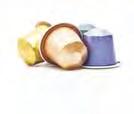
• Plastic bottles, jars and small containers coded 1, 2, 3, 4, 5 and 7 (no caps or squirt bottle nozzles)

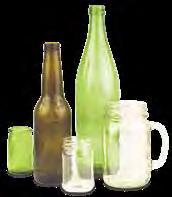
• Mixed paper and newspaper (clean and dry)
• Corrugated cardboard and thin cardboard (no dirty or greasy cardboard)
What NOT to recycle curbside in Pasco County
• NO plastic bags
• NO glass
• NO shredded paper
• NO StyrofoamTM
• NO milk or juice cartons
• NO “tanglers” (hoses, wires, tarps)
• NOTHING bigger than a cat litter container
• NOTHING wet or dirty
SIZE MATTERS
Pasco County does not recycle items that are larger than a cat litter container. Recycling machinery is not designed for large items.
Please, no tires, laundry baskets or storage bins in your recycling bin!

Pasco County does not recycle items that are smaller than your fist. Small items fall through the recycling machinery and cannot be recycled properly.
Please, no bottle caps, single-use coffee pods, straws or lids in your recycling bin!
Why no glass?
Glass breaks during the recycling process, contaminating other materials and reducing their recyclability and their value. Glass is also the most expensive material to recycle, and there is currently very little market for it. Place glass in the trash, where it will be sent to Pasco’s Waste-to-Energy Facility, burned to produce electricity and likely used in future sustainable public works projects. Do the right thing and throw glass away.
All dates subject to change. Visit MyPasco.net or KeepPascoBeautiful.org, or call 727-834-3611, 727-856-4539 or 727-847-2411 ext. 2046 for updates.
75 percent of all aluminum and steel ever produced is still in circulation. It is possible that the aluminum and steel in your beverage or food can dates back to the 1800s and has been recycled many times.
Source: Can Manufacturers Institute
1800s
2 Tampa Bay Times/NIE
Curbside trash and recycling collection in
Pasco County
In Pasco County, curbside trash and recycling collection services are provided by independent haulers. Residents need to sign up with one of these companies to receive service. Curbside recycling service is included with curbside trash service in Pasco County. Your trash hauler is obligated to provide you at least once-per-week recycling service.* Contact your trash hauler for your recycling pickup schedule or to order a recycling cart.
All Haul Waste
727-847-2420
AllHaulWaste.com
Coastal Waste & Recycling
(County Sanitation)
888-522-5794 or 727-561-0360
CountySanitationService.com
CoastalWasteInc.com
J.D. Parker & Sons
727-845-1024
JDParkerAndSons.com
Republic Services
727-868-2566
RepublicServices.com
Waste Aid Systems
813-996-1457 or 727-842-9309
WasteAidSystems.com
Waste Connections
352-583-4204 or 727-847-9100
WasteConnections.com
Waste Management of Pasco
813-621-3053 or 800-255-7172
WM.com
Pasco County Recycling
Drop-Off Locations
Pasco County residents who do not have curbside recycling service can drop off recycling at the following drop-off sites.
Aluminum cans and metal food cans, plastic bottles, jars and small containers coded 1, 2, 3, 4, 5 and 7, mixed paper and newspaper and corrugated cardboard and thin cardboard are accepted.
West Pasco Recycling Facility
14606 Hays Road, Spring Hill Mon. – Sat., 7 a.m. – 4:30 p.m. 727-861-3053
(also accepts used cooking oils and scrap metal)
Holiday Area Recycling
Anclote Gulf Park
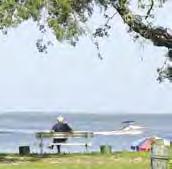
2305 Baillies Bluff Road, Holiday Wed. – Sat., 8 a.m. – 5 p.m. (recycling only)
East Pasco Transfer Station
9626 Handcart Road, Dade City Mon. – Sat., 7 a.m. – 4 p.m. 352-521-0500
(also accepts used cooking oils and scrap metal)
Land O’Lakes Area Recycling
Senior Services Center
6801 Wisteria Loop, Land O’Lakes Mon. – Fri., 8 a.m. – 3:30 p.m. (recycling only)
Recycling just one aluminum can saves enough energy to power a laptop for five hours.
Source: U.S. Environmental Protection Agency
Going beyond the text: Recycling in Pasco County
Solid waste items accepted at County facilities
• Up to 8 bags of trash per day (no charge)
• Furniture ($84.86 per ton/$4.24 for every 100 pounds)
• Construction debris ($84.86 per ton/$4.24 for every 100 pounds)
• Yard waste ($84.86 per ton/$4.24 for every 100 pounds)
• Mixed loads ($84.86 per ton/$4.24 for every 100 pounds)
• Car/pickup tires ($2 per tire)
• Truck/semi tires ($10 per tire)
• All other tires and loads over 10 tires (West Pasco location only) ($200 per ton)
• Refrigerators ($3 each)
• Air conditioners ($3 each)
• Metal (no charge unless in a mixed load)
Using the information on Pages 2-3 of this publication, make a list of items you use on a daily, weekly and monthly basis that can be recycled curbside or at a drop-off location in Pasco County. If your residence has curbside recycling service, how would you find out what day(s) your recycling is collected? If not, what drop-off location is closest to your home?
Next, look through the Tampa Bay Times and identify several items that you use daily that are not recyclable in Pasco County. Use this publication and the Pasco County Recycling website at pascocountyfl.net to find out 1. How you should get rid of them in the most environmentally friendly way, and 2. How you can reduce your use of these non-recyclable items. As a class, compare and discuss your findings. Which recyclable and non-recyclable items were most common? What were the best ideas for reducing the use of non-recyclable items?
Florida Standards: PK.K.SS.4.6; SP.PK12.US.9.2a; PK.K.SI.5.1; SC.112.N.1.1; ELA.K12.C.1.3; ELA.K12.C.2.1; ELA.K12.C.3.1; ELA.K12.C.4.1; ELA.K12.C.5.1; ELA.K12.F.1.3; ELA.K12.F.1.4; ELA.K12.R.2.1; ELA.K12.R.2.2; ELA.K12.R.2.3; ELA.K12.R.2.4; ELA.K12.V.1.1; ELA.K12.V.1.3;ELA.K12.EE.1.1; ELA.K12.EE.2.1; ELA.K12.EE.4.1; ELA.K12.EE.6.1
Tampa Bay Times/NIE 3
*Some restrictions apply
EARTH DAY
Saturday, April 22, 2023
9 a.m. - 1 p.m.
Crews Lake Wilderness Park
16739 Crews Lake Drive, Spring Hill
JOIN US FOR:
Children’s crafts and educational displays
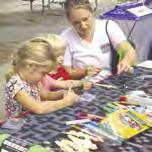
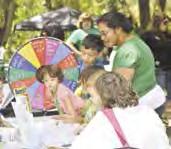
Ladybug releases

Rainwater harvesting workshop
Composting workshop
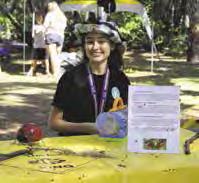
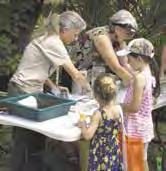
Document shredding
Florida Native Plants sale

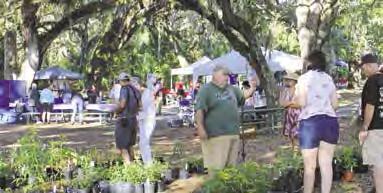
Adoptable pets
Upcycle vendors
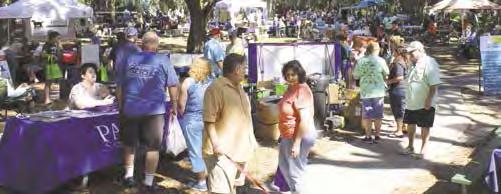
Florida Skunk Rescue
Dunndee Farms
Fox Tales Florida Fox Rescue
And much more!
Live Remote with HITS106 • 9 a.m. – noon
Electronics recycling: Two TVs free, additional TVs $7/each. All household electronics will be accepted. Mercury Bounty: Bring a mercury-containing device for a $5 gift card (excluding light bulbs).
Household Hazardous Waste collection: call 727-847-8041 for information.
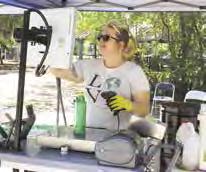
For more information, contact Lottie Kelley at Covanta Pasco at 727-856-2917, ext. 201 or lkelley@covanta.com.

Save time and money with Florida-Friendly fertilizing
Turfgrasses, most commonly found in lawns, require nutrients to stay green and healthy. Fertilizers are designed to supplement the nutrients found naturally in your soil. When applied correctly, fertilizer can increase leaf and root growth, aid in the recovery from pest damage and environmental stresses, reduce and control weeds, and replace nutrients lost to plant growth.
Recent studies have shown that the nitrates found in many inorganic fertilizers are being found in local water bodies. Nitrogen is needed in lawns to stay healthy. When applied at the right time and amount, turfgrass will use all of the nitrogen. However, when applied incorrectly, nitrogen can leach into groundwater or run off into lakes, rivers and the Gulf.
By applying Florida-Friendly LandscapingTM principles to your landscape, you can conserve water, reduce stormwater runoff and protect local waters.
By knowing your plants’ soil and water needs, you can reduce the amount of water used for irrigation, chemicals used for pest control and fertilizers used for growth – saving you time and money!
For more information on Florida-Friendly Landscaping™, contact the Pasco County Extension office at 352-518-0156 or visit sfyl.ifas.ufl.edu/pasco.
Florida-Friendly fertilizing DOs and DON’Ts
DO: Test your soil. If your soil is high in phosphorus, choose a fertilizer blend without it. For more information on soil tests, contact the Pasco County Extension office at 352-518-0156 or visit sfyl.ifas.ufl.edu/pasco.
DO: Only fertilize when grass is actively growing. When grass is dormant, fertilizer cannot be beneficially used by turfgrass and will instead leach through the soil or run off, polluting nearby bodies of water. Applying fertilizer at the right time will save time and money!
DO: Check with your utility provider to determine if your reclaimed water contains nutrients such as nitrogen and phosphorus. If so, you may not need to fertilize as frequently.
DO: Use only the recommended amount of fertilizer. Remember: more is not better!
DO: Use a slow-release nitrogen fertilizer. This allows for less mowing, less thatch buildup, less irrigation, fewer nutrients washing into ponds and other bodies of water, and fewer insects and disease problems.
DO: Leave a 10-foot nopesticide, no-fertilizer buffer between a fertilized area and water.
DON’T: Do not overuse fertilizers, especially near the water’s edge, to avoid washing excess fertilizer into bodies of water, causing algal blooms and undesirable weed growth. Repeatedly using large amounts of nitrogen fertilizer can increase pest and environmental stress problems.
DON’T: Do not fertilize if rain is predicted in the next 24-36 hours or when a heavy rain, tropical storm, hurricane or flood is predicted.
Don’t
let pet
waste contaminate our waterways
Do you know why it is so important to pick up your pet waste? It is not simply a matter of the inconvenience of stepping in poop. Pet waste can also contaminate our waters, affecting the environment, wildlife, and animal and human health.
Pet waste contains harmful pollutants: nutrients and pathogens, which include bacteria, viruses and
parasites. When it rains, this waste is eventually carried to surrounding bodies of water. While decomposing, nutrients can cause algae blooms, decreasing the oxygen available to fish and other aquatic species, and may even lead to their death. The pathogens in pet waste can cause sickness in pets and humans. They can cause symptoms including
intestinal problems, nausea, rashes, infections and even death.
The good news is that it is very easy to prevent all of these issues. If you have a pet, use plastic bags to collect all of their waste, even in your own yard, and dispose of it in the trash. And remember – many people don’t know all of this, so speak up and spread the word!
Tampa Bay Times/NIE 5
Household Hazardous Waste
In 2022, Pasco County:
COLLECTED 16,790 MERCURY-CONTAINING LAMPS (bulbs) FOR RECYCLING
DIVERTED 2,400 POUNDS OF HHW FROM THE WASTE STREAM
What is Household Hazardous Waste?
Leftover household products that contain corrosive, toxic, ignitable or reactive ingredients are considered to be Household Hazardous Waste (HHW).
Products such as paints, cleaners, oils, batteries and pesticides contain potentially hazardous ingredients that require special care when you dispose of them. Improper disposal of HHW can pollute the environment and pose a threat to human health.
HHW should never be poured down the drain, in the toilet, on the ground or into storm sewers, put in your household trash or put in your curbside recycling.
For more information on Household Hazardous Waste disposal, call Pasco County Solid Waste, Environmental Compliance at 727-847-2411, ext. 2046. Visit
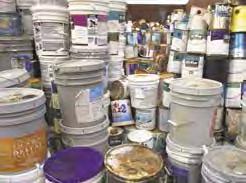
Household Hazardous Waste Reuse Program
Household Hazardous Waste diversion and disposal is critical. Pasco County has a partnership with the local Habitat for Humanity and donates any household hazardous waste that is still in good condition and usable. This allows HHW that was previously bound for disposal to be used for its original purpose. The partnership with Habitat for Humanity reduces the cost for disposal and allows for better material management.
Approximately 2,400 pounds of HHW was diverted from disposal and donated to Habitat for Humanity for reuse in 2022.
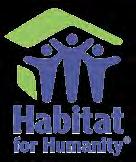
Fluorescent lamp recycling
Fluorescent tubes and compact fluorescent lightbulbs (CFLs) should never be placed in household trash or in curbside recycling.
Fluorescent tubes and CFLs contain a small amount of mercury that is essential for the bulb to emit light. While mercury is effective in emitting white light, it is also highly toxic. When one of these types of lamps breaks, toxic mercury in a vapor form is released.
Pasco County incinerates household trash in a Waste-to-Energy facility. Removing mercury from the solid waste stream is critical for the health of our workers, our residents and the environment.
Pasco County Solid Waste accepts residential fluorescent lamps for recycling at its two Household Hazardous Waste collection centers.
LED, incandescent and halogen bulbs can be placed directly into household trash. These types of lamps are mercury-free and contain no hazardous materials, and any metals are recovered from the incineration process.
6 Tampa Bay Times/NIE
bit.ly/HouseholdChemicalDisposal. A used aluminum can is recycled and back on the grocery shelf within just 60 days. Source: Institute of Scrap Recycling Industries
Where do I take my HHW?
Pasco County manages and operates two Household Hazardous Waste collection centers for the safe handling, processing and proper disposal of HHW. HHW brought to the collection centers by County residents is either recycled or sent out to a permitted hazardous waste management facility for treatment.
Household Hazardous Waste collection centers
East Pasco Transfer Station
Citizens drop-off
9626 Handcart Road, Dade City 352-521-0500
Monday – Saturday, 7 a.m. – 4 p.m.
West Pasco Resource Recovery Facility
Citizens drop-off 14606 Hays Road, Spring Hill 727-861-3053
Monday – Saturday, 7 a.m. – 4:30 p.m.
Items ACCEPTED at Pasco County HHW Collection Centers include:
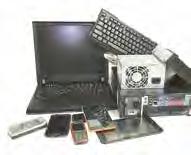
• Automotive fluids
• Electronics
• Cooking oils

• Fluorescent lamps
• Gasoline
• Herbicides and pesticides
• Household chemicals and cleaners
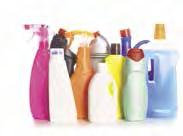
• Household and lead-acid batteries
• Paints, solvents and stains
• Propane tanks

Items NOT accepted at Pasco County HHW Collection Centers include:
• Acetylene gas cylinders
• Ammunition
• Biomedical waste

• Business waste
• Drums of any size
• Explosives
• Fireworks
• Medications
• Radioactive materials
• Sharps
Package and transport your chemicals safely.
• Keep chemicals capped and in their original containers with original labels.
• Don’t mix chemicals, particularly unknown chemicals.
• Pack leaky containers in larger, sound containers.
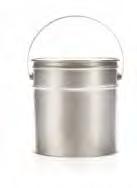
• Place containers in sturdy boxes for transportation. Place papers between containers to prevent breakage.
Recycling 10 plastic bottles saves enough energy to power 97.8 hours of a 60W CFL lightbulb.
Source: U.S. Environmental Protection Agency
Going beyond the text: Household lighting survey
Chances are, you have a variety of lighting in your home, including incandescent, fluorescent, LED and halogen bulbs. Create a chart: Along the left-hand side, list the different rooms in your home. Along the top, list the different types of bulbs commonly found in residences (incandescent, fluorescent, LED and halogen). For each room, record the number of bulbs of each type. Next, research the environmental, economic and health advantages and disadvantages of each type of bulb. Working in small groups, create a public service announcement (PSA) encouraging people to replace less eco-friendly light bulbs with more eco-friendly choices. You can create a video, image, radio announcement or infographic. Next, modify your PSA to be a print ad in the Tampa Bay Times. Your PSA should include a call to action for what the public should do, or not do, as a result of this knowledge. Present your PSA to your class.
Florida Standards: SS.8.G.5.1; SC.1.L.14.1; SC.4.L.17.4; SC.912.L.17.17; PK.K.SS.4.6; SP.PK12.US.9.2a; K.SI.5.1; SC.112.N.1.1; SC.912.E.6.6; ELA.K12.C.1.3; ELA.K12.C.2.1; ELA.K12.C.3.1; ELA.K12.C.4.1; ELA.K12.C.5.1; ELA.K12.F.1.3; ELA.K12.F.1.4; ELA.K12.R.2.1; ELA.K12.R.2.2; ELA.K12.R.2.3; ELA. K12.R.2.4; ELA.K12.V.1.1; ELA.K12.V.1.3; ELA.K12.EE.1.1; ELA.K12.EE.2.1; ELA.K12.EE.4.1; ELA.K12.EE.6.1
Tampa Bay Times/NIE 7
What happens to your recycling?
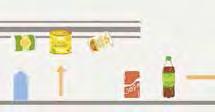
Pasco county has eight different, licensed trash haulers who pick up both garbage and recycling. Call your trash hauler to find out your recycling pickup schedule.
The final and most important part of the recycling process is YOU! For recycling to work, products that use recycled materials need to find homes on our shelves, not only in our recycling bin.
1
2 Your is to for County’s a MRF
Your recycling is brought by your trash hauler to a County facility in Spring Hill. This facility acts as a halfway point between Pasco County residents and a Materials Recovery Facility (MRF).
The next step separates and collects aluminum using an Eddy Current Separator. This separator creates a magnetic field powerful enough to repel aluminum away from other recyclables.
9 8
3 10
Made with recycled content
The sorted recycled materials are then shipped locally and internationally to be remanufactured into new products.
For more information about recycling in Pasco County, email Recycling@MyPasco.net, call 727-856-4539 or visit Facebook.com/PascoCounty SolidWasteAndRecycling.
7
The next step separates and collects magnetic items such as steel food cans. The cross-belt magnet does this job by attracting all magnetic items while leaving other items on the belt to move onto the next sorting process.
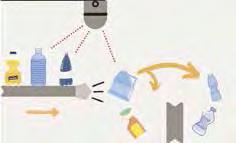
The East Pasco Transfer Station, part of the County’s current integrated waste management system, has been expanded to accommodate Pasco County’s growth for years to come. The transfer station was developed to provide a mechanism for transferring and transporting solid waste generated within the county. The existing transfer station will be refurbished to receive and transfer recyclables.

8 Tampa Bay Times/NIE
recycling?
Your recycling then sent to a MRF be sorted and prepared for remanufacturing. Pasco County’s recycling is sent to MRF in St. Petersburg.
4 5
After your recycling arrives at the MRF, the recycling load is looked over by a couple of employees to remove any large pieces of contamination.
6
Going beyond the text: Natural resources
NATURAL RESOURCE EXAMPLES OF PRODUCTS/SERVICES
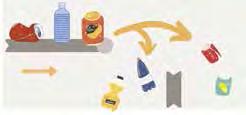
Bauxite ore Aluminum products (cans, airplane and car parts)
Chromium Stainless steel, green glass, gems (rubies and emeralds)
Coal Fuel
Cobalt Steel, jet engine parts, cutting tools, batteries
Copper Wire, coins, electrical equipment
Cotton plant Clothing
Diamonds Jewelry, mechanical equipment
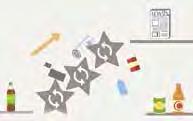
Gold Jewelry, electronics, dental material
Iron ore Steel products (cans, building materials)
Manganese Steel, cast iron, batteries
The first step of sorting uses spinning rubber stars known as “rotary screen separators” that separate paper and cardboard from heavier plastics and metals. While the separators spin, the rubber catches the flat surface of paper and cardboard and lifts them to a different conveyor belt.
The next step separates and collects different plastics by using an optical eye sorter. This optical eye utilizes a laser to measure the density of plastics and uses a puff of air to sort certain plastics.
Pasco County Biosolids Facility

Did you know? Pasco County is committed to finding new ways to reduce, reuse and recycle materials. Pasco County’s FloridaGreen Biosolids Facility, powered by the neighboring Waste-to-Energy plant, transforms leftovers from wastewater treatment into class AA fertilizer, keeping 23,000 tons of waste out of the landfill. This facility was created through a public-private partnership between Pasco County and biosolids management corporation Merrell Bros.
Natural gas Fuel
Oil/petroleum Plastic, fuel
Platinum Air pollution control and telecommunications equipment, jewelry
Trees Paper, furniture, fuel
Natural resources are useful and valuable materials from the Earth, such as coal, minerals, water, natural gas, plants and trees. People use natural resources as raw materials to manufacture or create a range of products and services.
For example, water and food provide humans with sustenance and energy. Fossil fuels generate heat as well as energy for transportation and industrial production. Many of the same natural resources used by people are important to plants and wildlife for survival as well. Nonrenewable resources are those that become depleted more quickly than they naturally regenerate. One example of a nonrenewable resource is mineral ore. Once mined and used completely, it is gone forever for all practical purposes, because it will take millions of years to regenerate. Renewable resources can be replenished at approximately the same rate at which they are used (for example, sun and wind, which can be used to provide energy).
Choose a natural resource from the list to research. Using the Tampa Bay Times and Internet resources, investigate the following questions:
• What are the dominant sources of this resource?
• Where is it typically found?
• What/where are the dominant uses for this resource?
• Is this resource renewable or nonrenewable? If it is nonrenewable, is it likely to become depleted in the near future?
• Is this resource recyclable or non-recyclable? If it is non-recyclable, how is it disposed of? Are there any environmental issues associated with its disposal?
• What environmental, political and/or social issues surrounding this resource have been in the news?
Write a report presenting your research. Be sure to include a reference page listing your sources. Share what you have learned with your class.
Adapted from: U.S. Environmental Protection Agency’s Office of Solid Waste, “Sources of Resources,” The Quest for Less: Activities and Resources for Teaching K-8
Florida Standards: SS.8.G.5.1; SC.1.L.14.1; SC.4.L.17.4; SC.912.L.17.17; PK.K.SS.4.6; SP.PK12.US.9.2a; K.SI.5.1; SC.112.N.1.1; SC.912.E.6.6; ELA.K12.C.1.3; ELA.K12.C.2.1; ELA.K12.C.3.1; ELA.K12.C.4.1; ELA.K12.C.5.1; ELA.K12.F.1.3; ELA.K12.F.1.4; ELA.K12.R.2.1; ELA.K12.R.2.2; ELA.K12.R.2.3; ELA.K12.R.2.4; ELA.K12.V.1.1; ELA.K12.V.1.3; ELA.K12.EE.1.1; ELA.K12.EE.2.1; ELA.K12.EE.4.1; ELA.K12. EE.6.1
Tampa Bay Times/NIE 9
7
Waste-to-Energy:
In Pasco County, trash = electricity
Landfilling vs. Waste-to-Energy
Trash is collected from homes and businesses by third-party haulers and taken to the Pasco County Solid Waste Resource Recovery Facility.
Landfill Waste-to-Energy
Landfill waste can take 100 years or more to fully degrade.
Garbage is processed into energy in a matter of hours.
2 3 5
Trash is combusted to produce energy, which is sold to Duke Energy. Gases produced by combustion are processed, filtered and cleaned before being safely released into the atmosphere.
Reclaimed water from the County’s wastewater treatment plant is used in the Waste-to-Energy facility’s cooling tower.
4
1 6
Magnets are used to recover ferrous metals, such as iron and steel, from the ash.
Electrical currents called eddy currents are used to recover nonferrous metals such as aluminum and copper. These metals are then sold for recycling.
The leftover ash, which takes up 85 percent less space than the original trash, is landfilled or used in roadbeds.
The WTE will undergo improvements to better handle Pasco’s growing population.
Ferrous scrap, made of iron and steel, is the most recycled material in the United States and worldwide.
Source: Institute of Scrap Recycling Industries
Recycling one ton of steel conserves 2,500 pounds of iron ore and 1,400 pounds of coal.
Source: Institute of Scrap Recycling Industries
Landfills recover no discarded metals.
Pasco’s WTE facility recovers enough metal annually to make 9,000 cars, 83 million aluminum cans or a paper clip chain long enough to encircle the Earth 16 times.
Methane emitted by landfills is the secondlargest contributor to global climate change.
Landfills accounted for 15 percent of all methane emissions in 2019.
One ton of waste processed in a WTE facility avoids a ton of CO2 equivalent emissions.
Pasco’s WTE facility operates at up to 99 percent below federal emissions standards.
In 2022, more than 45,000 truckloads of trash were diverted from the landfill and instead combusted to generate electricity:
MORE THAN
900 TONS OF TRASH are combusted in Pasco County each day to produce energy.
1,188 TONS OF NON-FERROUS METALS were recovered in 2022. Manufacturing products from recycled aluminum saves up to 95 percent of the energy needed to manufacture them from new materials.
10,376 TONS OF FERROUS METALS WERE RECOVERED IN 2022 , ENOUGH TO BUILD 9,000 CARS
Pasco County’s WTE facility generates 31 MEGAWATTS OF ENERGY enough to power 22,000 homes.
10 Tampa Bay Times/NIE
How to recycle electronics, cellphones and batteries in Pasco County
Electronics recycling
It is estimated that up to 75 percent of old electronics remain in homes because people don’t know what to do with them.
Computers, TVs, stereo systems and other electronic equipment contain both useful recyclable materials as well as elements that are hazardous and must not end up in landfills or be incinerated.
Electronic equipment accepted for recycling in Pasco County includes cellphones, computers, TVs, computer monitors, printers and fax machines. There is a $5 per item charge for TVs, laptops, computer monitors and CPUs. TVs larger than 36 inches are $10 each.
Pasco County accepts electronics for recycling at its two Household Hazardous Waste collection centers, listed on Page 7.
Household battery recycling
Most batteries, regardless of type, contain toxic chemicals such as cadmium, lead, lithium or sulfuric acid. When a battery is thrown away in the trash, it ends up in a landfill or incinerator where pollutants like these can be released. Not only does this have the potential to impact human health and the environment, but we also are losing metals and natural resources that require energy to mine and manufacture.
Pasco County Resource Recovery has public drop-off locations with battery recycling containers located across the county at every county library as well as various schools and county offices.
Batteries also are accepted at Pasco County’s two Household Hazardous Waste collection centers, listed on Page 7.
In 2022, Pasco County collected for recycling:
22,857 POUNDS OF HOUSEHOLD BATTERIES
8 4 TONS OF ELECTRONICS
6,036 CELLPHONES
Environmental Compliance at 813-847-2411, ext. 2046.
drop-off locations
Going beyond the text: Rechargeable battery disposal
Rechargeable lithium-ion (Li-ion) batteries power many of the devices we use today. Watch the PBS NOVA video “Lithium’s Properties and Power Potential” at florida.pbslearningmedia.org/resource/nvsb-sci-licell/wgbhnova-search-forthe-super-battery-inside-a-lithiummetal-cell/.
A 2021 EPA report found 245 fires caused by lithium metal or lithium-ion batteries between 2013 and 2020 at 64 waste facilities. The fires happened at Materials Recovery Facilities, in transportation vehicles such as garbage trucks, and at garbage disposal facilities.
For example, in April 2022, it took first responders roughly 26 hours to fully contain a fire most likely caused by a lithium-ion battery explosion at a scrap metal facility in Manatee County. Read and watch the WTSP story “Plant manager: Lithium battery explosion sparked shred yard fire” at wtsp.com/article/news/local/lithiumbatteryexplosion-sparked-shred-yard-firemanatee-county/67-38ebeae8-2e4e-46b1-8b93-4c99a2630a03.
The danger occurs when machines compress and consolidate waste. This type of battery can be damaged easily and, when damaged, can start fires by igniting the surrounding materials. Because of this, lithium-ion batteries should never be put in household garbage or recycling bins. Instead, store the battery or device in a safe location until you can bring it to one of Pasco County’s two Household Hazardous Waste collection centers, listed on Page 7.
Working in small groups, look through the Tampa Bay Times to find ads that you find persuasive. Using these ads as your models, create a newspaper advertisement that explains the importance of properly disposing of rechargeable batteries and encourages Pasco County residents to do so. Your goal is to grab the reader’s attention and communicate a clear “Call to Action.”
Tampa Bay Times/NIE 11
Florida Standards: ELA.312.C.1.3; ELA.312.C.1.4; ELA.312.C.2.1; ELA.312.C.3.1; ELA.312.C.4.1; ELA.312.F.1.1; ELA.312.F.1.2; ELA.312.F.1.3; ELA.312.F.1.4; ELA.312.R.2.1; ELA.312.R.2.2; ELA.312.R.2.3; ELA.312.R.2.4; SP.PK12.VI.9.11; WL.K12.AH.1.4; WL.K12.AI.1.4
Household
• All Pasco County Libraries • C entral Pasco Professional Center –4111 Land O’Lakes Blvd., Suite 202, Land O’ Lakes • E ast Pasco Government Center –14236 6th St., Dade City • J. Ben Harrill Holiday Recreation Complex –2830 Gulf Trace Blvd., Holiday • L and O’Lakes Recreation Center –3032 Collier Parkway, Land O’Lakes • New Port Richey City Hall –5919 Main St., New Port Richey • Pasco County Community Services/Elderly Nutrition – 600 Galen Wilson Blvd., Port Richey • West Pasco Government Center –8731 Citizens Dr., First Floor, New
battery
Port Richey For more information about recycling electronics, cellphones and batteries, call Pasco County Solid Waste,
MEDICATION DISPOSAL:
How to dispose of unwanted, unused or expired medication
Growing concern over substance abuse and environmental impacts has spurred initiatives to more safely and securely manage householdgenerated pharmaceutical waste.
In cities and towns where residences are connected to wastewater treatment plants, prescription and over-the-counter drugs poured down the sink or flushed down the toilet can pass through the treatment system and enter rivers and lakes. They may flow downstream to serve as sources for community drinking water supplies. Water treatment plants are generally not equipped to routinely remove medicines.
In homes that use septic tanks, prescription and over-the-counter drugs flushed down the toilet can leach into the ground and seep into groundwater.
Medication disposal DOs and DON’Ts
DON’T
• DO visit a participating take-back location or collection center for proper disposal.
• DO participate in the National Prescription Drug Take-Back Day.
• DO follow the guidelines below if you must dispose of medications in the trash.
Put
• DON’T give medications to another person.
• DON’T flush medications down the toilet or drain.
• DON’T throw away medications without disguising them from humans and animals.
Pasco County medication take-back locations
Pasco County law enforcement agencies offer several take-back locations across the county.
Pasco County Sheriff’s Office
West Operations Center 7432 Little Road, New Port Richey
Pasco County Sheriff’s Office 36409 SR 52, Dade City
Pasco County Sheriff’s Office 11530 Trinity Blvd., Trinity
New Port Richey Police Department (24/7), 6739 Adams St., New Port Richey
Dade City Police Department (24/7), 38042 Pasco Ave., Dade City
Pasco Detention Facility
(lobby – 24/7), 20101 Central Blvd., Land O’Lakes
In addition to the locations above, some retail pharmacies offer medication take-back collection. Contact your local store or visit dea. gov/takebackday to find a location near you.
medications in the trash the right way

If none of the disposal options above are available to you, follow these steps to safely dispose of unwanted, unused or expired medications. Never put medications in the trash without disguising them.
1. Keep medicine in the original container so it can be identified in case of accidental ingestion.
2. Use a marker or razor blade to remove your name and prescription number from the label.
3. Add water or soda to pills to start dissolving them. If the drug is a liquid, add dirt or cat litter to help discourage misuse or unintentional use of the medication if it’s found and opened.
4. Secure the lid tightly and seal it with duct tape.
5. Place medicine container(s) in a non-see-through container such as a coffee can or empty laundry bottle.
6. Tape that container closed and place it in the trash.
12 Tampa Bay Times/NIE
DO
Sharps Exchange Program

The Pasco County Sharps Exchange Program provides residents with a way to safely dispose of their needles, syringes, tubes and lancets for no charge while also receiving a new sharps container for free.
Improper disposal of sharps can lead to them entering the sewer system, waterways, our environment or solid waste stream, which endangers the safety and health of our citizens and sanitation workers.
How does the program work?
1. Visit one of the six sponsoring facilities to obtain a red sharps container. Visit bit.ly/ HouseholdChemicalDisposal and click on Sharps Exchange Program to find a list of participating locations.

2. Take the new container to your home and place it out of reach of children.
3. Perform your injections as needed and then dispose of the syringes completely intact into the sharps container.
4. When full, seal the container and exchange it for a new one at a participating location.
For more information about medication disposal or sharps exchange, call Pasco County Solid Waste, Environmental Compliance at 727-847-2411, ext. 2046.
If you do not have a red sharps container, using a two-liter soda bottle is acceptable. Be sure to replace the cap on the bottle when it is full.
Sharps are not accepted at any of the Pasco County Health Department locations or any Pasco County Household Hazardous Waste Collection Centers.
Going beyond the text: Reducing harmful runoff
Excessive human-produced nutrient pollution flowing into our waterways from sources such as residential and agricultural fertilizer, sewage spills, leaky septic tanks and pet waste have been linked to more widespread and persistent Red Tide and other harmful algae blooms. These harmful algae blooms lead to massive losses in seagrass coverage, the main food source for manatees. In 2022, state and federal officials hand-fed 200,000 pounds of lettuce to chronically malnourished manatees to prevent widespread dieoffs. In 2023, they plan to purchase 400,000 pounds of lettuce for the hand-feeding program. Research this issue using the information in this publication, the Tampa Bay Times and Internet resources such as the Save the Manatee Club and Tampa Bay Watch. Using the opinion articles, editorials and letters to the editor in the Opinion section of the Times as examples, write a letter to the editor urging your neighbors to take steps to reduce nutrient pollution.
Florida Standards: SS.8.G.5.1; SC.1.L.14.1; SC.4.L.17.4; SC.912.L.17.17; K.SS.4.6; SP.PK12.US.9.2a; PK.K.SI.5.1; SC.112.N.1.1; SC.912.E.6.6; ELA.K12.C.1.3; ELA.K12.C.2.1; ELA.K12.C.3.1; ELA.K12.C.4.1; ELA.K12.C.5.1; ELA.K12.F.1.3; ELA.K12.F.1.4; ELA. K12.R.2.1; ELA.K12.R.2.2; ELA.K12.R.2.3; ELA.K12.R.2.4; ELA.K12.V.1.1;

Making one ton of paper from recycled pulp can save between 3,000 and 4,000 KWh over making it from fresh wood.
Source: U.S. Environmental Protection Agency
Recycling one ton of paper saves 3.3 cubic yards of landfill space.
Source: Institute of Scrap Recycling Industries
Tampa Bay Times/NIE 13
ELA.K12.V.1.3; ELA.K12.EE.1.1; ELA.K12.EE.2.1; ELA. K12.EE.4.1; ELA.K12.EE.6.1
(CORE)
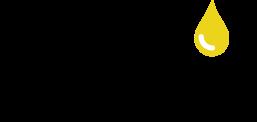
Your used cooking oil is a commodity in demand

Since 2007, Pasco County has participated in the Cooking Oil Recycling Effort program (CORE), a statewide initiative to educate citizens and municipalities on residential cooking oil collection and recycling.
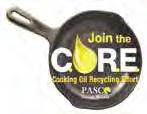
When oil and grease are poured down your drain, they stick to the inside of pipes and build up. This can cause blockages that can back up sewage into your home or cause a sewer overflow onto your neighborhood streets. Overflows are a health hazard and can be expensive. Have a septic tank? Recycling your used oils can help reduce drain field problems. Recycling used cooking oils also helps reduce the county’s pump station and sewer maintenance costs.
Pasco County’s program, started in 2007 with just two drop-off locations, has grown to 12 locations including manned recycling locations, over-55 communities, schools with culinary programs and Pasco County parks with concession stands. In 2022, the program collected more than 2,500 gallons of used cooking oil.
Used cooking oils are recycled and processed for use in products such as poultry feed, soap, biofuel and fertilizer. Newer uses

CORE drop-off locations
Pasco County residents are encouraged to recycle all used cooking oils and fats, including bacon grease. Liquids and semi-solids are accepted at the drop-off locations. Every ounce recycled is one less down the drain!
East Pasco Transfer Station
9526 Handcart Road, Dade City
Pasco County Facilities
7220 Osteen Road, New Port Richey
include lubrication for construction pilings or as an environmentally friendly substitute for petroleum. Your used cooking oil is a commodity in demand!
CORE tips
• Never pour grease down the sink.
• Before washing pots and dishes, scrape food waste into the trash.
• Minimize use of your garbage disposal. Remember, it is not a trash can. A lot of small pieces of food can clog pipes.
• Use sink strainers and clean them often.
• Pour cooled oils and fats into a container and bring them to a CORE location.
One metric ton of electronic scrap from personal computers contains more gold than that recovered from 17 tons of gold ore.
Source: Institute of Scrap Recycling Industries
West Pasco Resource Recovery Facility
14606 Hays Road, Spring Hill
Zephyrhills
Maintenance Yard
39421 South Ave., Zephyrhills
For more information about CORE, call Pasco County Solid Waste, Environmental Compliance at 727-847-2411, ext. 2046.
14 Tampa Bay Times/NIE
Pasco County Residential
Going beyond the text: Make every day Earth
Day
Read the National Geographic Explorer magazine article “Celebrate Earth” at nationalgeographic.org/activity/introductionearth-day/#celebrate-earth.
• W hen did the first Earth Day take place? Why?
• W hat did people do at the first Earth Day celebration?
• W hat laws did the government pass to protect our environment?
• W hat other countries celebrate Earth Day?
• What information did you learn from the article that was new to you?
As a class, brainstorm environmental problems that affect your daily lives (for example, littering, wasting electricity or wasting water) and write them on the board. As part of the brainstorming activity, look for articles or images in the Tampa Bay Times that depict environmental problems. Discuss: Is it possible to have a big impact on the environment by making small changes (such as taking reusable bags to a store to create less waste)? Brainstorm ideas of how you can make small changes that will add up to a big impact and write them on the board. Choose one small change that your class can make to “make every day Earth Day.” Create a method to track the small changes that your class makes and estimate the impact of these changes over a period of time.
Adapted from: National Geographic, “Introduction to Earth Day”
Florida Standards: SS.8.G.5.1; SC.1.L.14.1; SC.4.L.17.4; SC.912.L.17.17; K.SS.4.6; SP.PK12.US.9.2a; K.SI.5.1; SC.112.N.1.1; ELA.K12.C.1.3; ELA.K12.C.2.1; ELA.K12.C.3.1; ELA.K12.C.4.1; ELA.K12.C.5.1; ELA.K12.F.1.3; ELA.K12.F.1.4; ELA.K12.R.2.1; ELA.K12.R.2.2; ELA.K12.R.2.3; ELA.K12.R.2.4; ELA.K12.V.1.1; ELA.K12.V.1.3; ELA.K12.EE.1.1; ELA.K12.EE.2.1; ELA.K12.EE.4.1; ELA.K12.EE.6.1
Think before you flush:
Protect your home and family from sewer backups
The Pasco County Sanitary Sewer Collection System is a network of sewer lines, manholes, and pumping stations. Many sewer line clogs are caused by residents flushing wipes, trash, hygiene products and other solids down the toilet. Hygiene and baby wipes do not dissolve like toilet paper when flushed, and are one of the leading causes of problems in the wastewater collection system.
Most clogs can be avoided. They not only have potential health risks, but also cost money for added maintenance and repairs to sewer lines and pump stations. Help avoid backups by putting items such as wipes, feminine hygiene products, family planning products, cotton balls and swabs, and cat litter in the trash.
Think before you flush and protect your home
For more information about what not to flush, call Pasco County Solid Waste, Environmental Compliance at 727-847-2411, ext. 2046.
and family from sewer backups. Your sink and toilet aren’t garbage cans. Just because you can flush it, doesn’t mean you should.
NEVER FLUSH
• Baby, personal care or cleaning wipes (including the “flushable” kind!)
• Paper towels or cloth rags
• Cloth or disposable diapers
• Feminine hygiene products
• Dental floss
• Cotton balls, swabs or Q-tips
• Family planning products
• Coffee grounds
• Cat litter
• Contact lenses
• Prescription or overthe-counter medications
• Syringes or sharps
Tampa Bay Times/NIE 15
About Pasco County Recycling
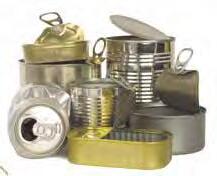
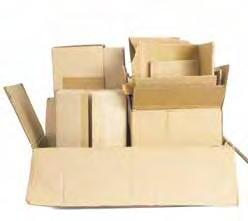
Pasco County Recycling is committed to reducing the waste stream through recycling and reuse, encouraging environmental stewardship, and providing information and presentations to educate citizens about recycling and the benefits of waste reduction.
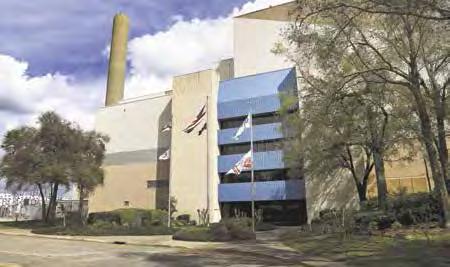
Pasco County Recycling is a frequent presence at community events, from neighborhood gatherings to large festivals, holiday jamborees and farmer’s markets, educating residents about recycling and waste reduction. For more information about recycling in Pasco County or to invite Pasco Recycling to your event, call 727-856-4539 or email recycling@MyPasco.net.
Recycling one ton of plastic bottles reduces greenhouse gas emissions by 3,380 pounds –the equivalent of 173 gallons of gasoline. Source: Institute of Scrap Recycling Industries
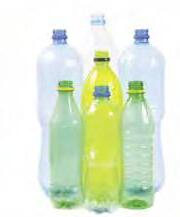
About NIE
The Tampa Bay Times Newspaper in Education program (NIE) is a cooperative effort between schools and the Times Publishing Co. to encourage the use of newspapers in print and electronic form as educational resources — a “living textbook.”
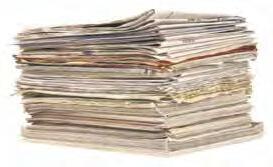
Our educational resources fall into the category of informational text, a type of nonfiction text. The primary purpose of informational text is to convey information about the natural or social world.
NIE serves educators, students and families by providing schools with class sets of the Pulitzer Prize-winning Tampa Bay Times plus award-winning original educational publications, teacher guides, lesson plans, educator workshops and many more resources — all at no cost to schools, teachers or families. In 2021-2022, NIE provided more than a quarter-million print copies and more than 10.5 million e-Newspaper licenses to Tampa Bay classrooms.
For more information about NIE, visit tampabay.com/nie, call 727-893-8138 or email ordernie@tampabay.com. Follow us
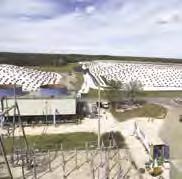

on Twitter at twitter.com/TBTimesNIE. Find us on Facebook at facebook.com/TBTNIE.
NIE staff
Jodi Pushkin, manager, jpushkin@tampabay.com
Sue Bedry, development officer, sbedry@tampabay.com
Credits
Project manager: Sue Bedry, Times staff
Designed by: Stacy Rector, Fluid Graphic Design, stacyrector1@comcast.net, fluidgraphicdesign.com
Cover photos by: Main cover photo by Tailyr Irvine, Times staff Daisy inset by Douglas R. Clifford, Times staff
Written by: Rachelle G. Dobbs, Pasco County Utilities recycling manager, William “Bill” Rodriguez, Interim environmental/hazardous manager, Kristen King, Keep Pasco Beautiful coordinator, Lottie Kellie, Covanta Pasco administrative assistant, Sue Bedry, Times staff
©Tampa Bay Times 2023
Florida Standards
This publication and its activities incorporate the following Florida Standards for elementary, middle and high school students.
SS.8.G.5.1; SC.1.L.14.1; SC.4.L.17.4; SC.912.L.17.17; PK.K.SS.4.6; SP.PK12.US.9.2a; PK.K.SI.5.1; SC.112.N.1.1; SC.912.E.6.6; ELA. K12.C.1.3; ELA.K12.C.2.1; ELA.K12.C.3.1; ELA.K12.C.4.1; ELA. K12.C.5.1; ELA.K12.F.1.3; ELA.K12.F.1.4; ELA.K12.R.2.1; ELA. K12.R.2.2; ELA.K12.R.2.3; ELA.K12.R.2.4; ELA.K12.V.1.1; ELA. K12.V.1.3; ELA.K12.EE.1.1; ELA.K12.EE.2.1; ELA.K12.EE.4.1; ELA. K12.EE.6.1
Teach with the Times and win Educators, share 100 words about how you used this resource in your classroom for a chance to win a $15 gift card! Visit tampabay.com/nie and click on Resources,
16 Tampa Bay Times/NIE
Information for Teachers for more information and to enter.





















































